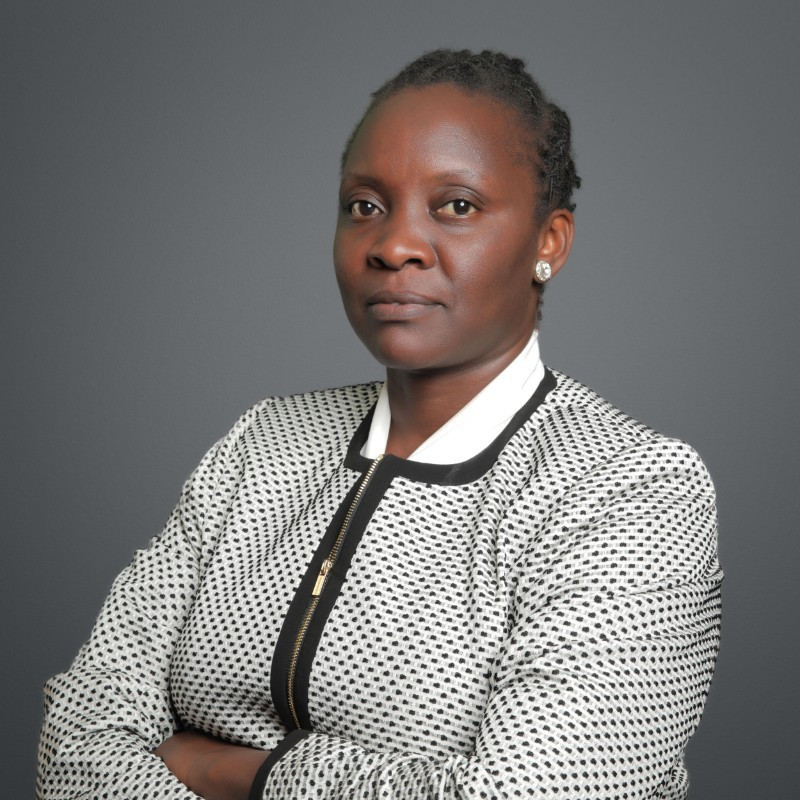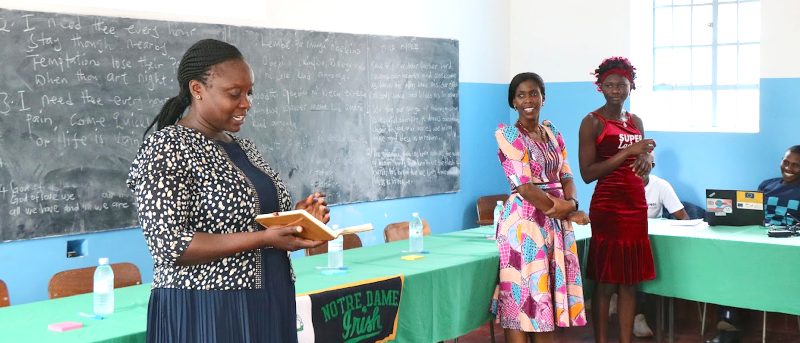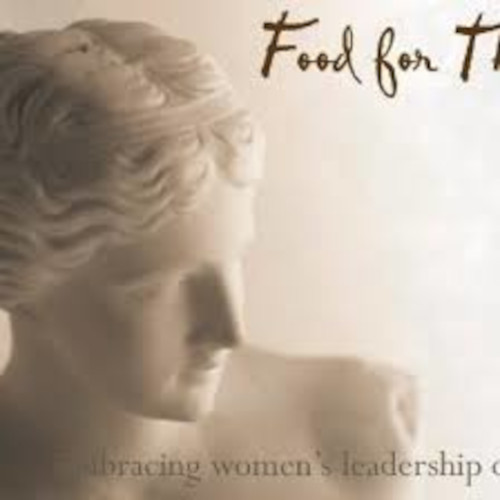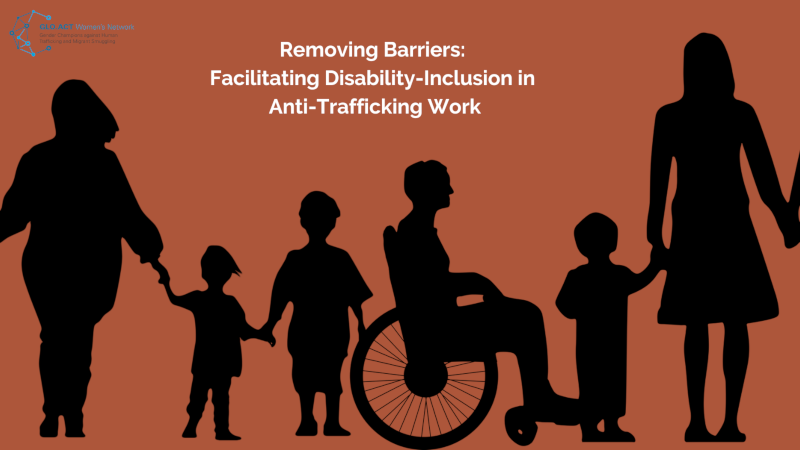Speaking up for survivors of human trafficking: Victoria Nyanjura’s story
The UN Trust Fund for Victims of Human Trafficking (UNVTF) provides humanitarian, legal and financial aid to victims of trafficking in persons through the awarding of grants to civil society organizations. Victoria Nyanjura was recently elected as Chair of the UNVTF and is the first-ever survivor of human trafficking to serve on the Board. Below, she speaks to the UN Office on Drugs and Crime, administrator of the UNVTF, about her experience and hopes for the Trust Fund.
30 July marks the World Day against Trafficking in Persons, with the theme “Leave no child behind in the fight against human trafficking”. Let’s use this day to call for accelerated action to end child trafficking.
Learn more at www.endht.org.
It is an average October night in 1996.
Victoria Nyanjura, 14, and her schoolmates have all gone to sleep in their dormitories at St. Mary’s College Aboke, a boarding school in the Oyam district of northern Uganda.
The sound of gunfire and breaking glass interrupts her dreams.
“The Lord’s Resistance Army had come to our school.”
Reign of terror
The Lord’s Resistance Army emerged in the 1980s as a rebel group in northern Uganda who have abducted, killed, and mutilated thousands of civilians across Central Africa.
“I had heard about them before,” Victoria acknowledges, “but it was never so serious.
“They entered and started removing each and every girl in the school. They then tied our hands behind our backs; they did not want us to escape.
“They walked away with 139 of us.”
Eight years of “torture”
An Italian nun (the school’s deputy headmistress) managed to immediately negotiate the release of 109 of the girls – but Victoria was not among them.
She described the “physical and emotional torture” of being with the Lord’s Resistance Army for the next eight years.
“I was raped in captivity; that’s how I got my two children. We were always living on our own in the jungle [in both Uganda and what is now South Sudan], having no food to eat. We even had to give birth with no medical attention whatsoever, because there was nothing like hospitals.
“The kids couldn’t go to school. I lost touch with my family completely. We didn’t have a choice in what we did on any day, because we were always moving around, in different settings.”
An escape and new determination
On a rainy night in May 2004, Victoria managed to escape amidst a fight between the rebels and the Ugandan government.
She returned home and soon started begging her parents to send her back to school to make up for the years she had lost. “They thought it might be too hard for me. But every decision in my life for the past eight years had been made against my will. I was determined to have this.”
It was hard, she admits, for the first three years. But once she went to university, “I felt like any other person. They didn’t know I had been abducted, because I had never told them – fearing their stigma.”
Victoria was lucky, she says. Many other victims of human trafficking that she meets are never able to go back to school – they are stigmatized by their communities and even their own families.

Speaking up
After university, Victoria began volunteering and then working with a local non-governmental organization called the Justice and Reconciliation project, working directly with women who had returned from captivity.
“Every time we would meet and speak with the women, they would say: ‘I’ve already told my story – and no one is listening.’”
The survivors would tell Victoria that she was “lucky” because she had gone to school and was receiving a salary, whereas their lives had remained the same. “No one was helping them put food on the table, helping to send their children to school – helping them to live like any other person.”
Victoria then decided to found an organization of her own, Women in Action for Women, whose goal is to provide economic support to women with business and vocational skills.
She also became a founding member of the Global Survivor Network, an international coalition of survivors spearheading a movement to combat violence and protect vulnerable individuals. Additionally, she leads St. Bakhita Vocational Training Centre, which has provided hundreds of young girls and child mothers with the skills and resources they need to build a better future for themselves and their families.
But a broader lesson she learned was the need for survivors’ perspectives to be heard – one of the reasons she was so keen to serve as the first survivor on the board of the UNVTF.
“Governments, lawmakers, and the public need to recognize that survivors are people who are capable of designing solutions,” she says.
Her mission serving on the Board of the UNVTF, she adds, is to unite survivors and raise awareness about the impact that human trafficking has had on her life. “I want to shed light on the harsh realities that survivors go through so that those who are involved in assisting the survivors can do so from a more informed point of view.”
Fostering hope
Victoria hopes that her serving on the Board will serve as inspiration to her fellow survivors.
“They might say to themselves, look, Victoria can serve on that Board!” she says, smiling. “They may be encouraged to start working in lots of capacities, wherever they are – and once many of us are in leadership, hopefully there will be accountability.
“Then, when survivors start to speak, even the perpetrators will have something to fear – transparency.”



